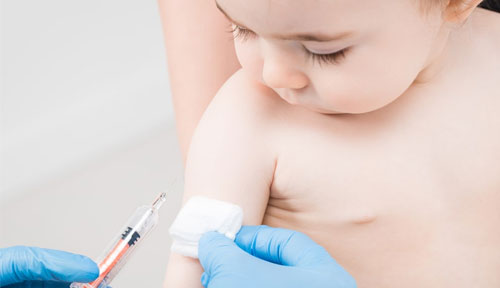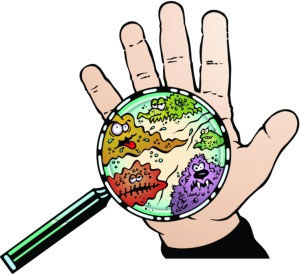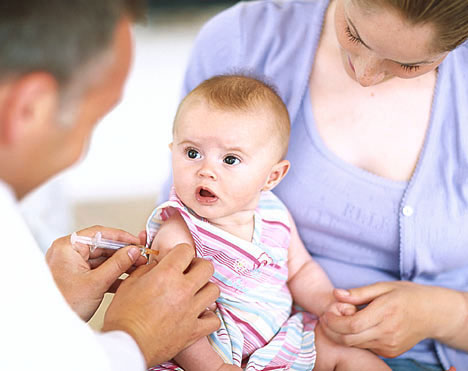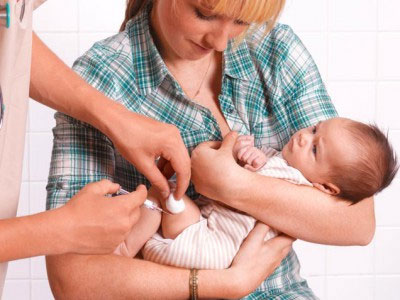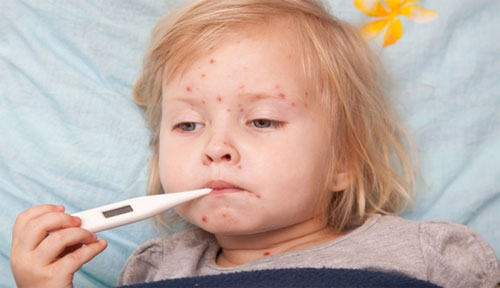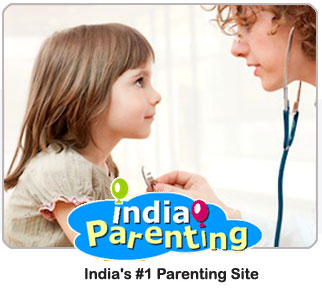Immunization forms one of the most important and cost effective strategies for the prevention of childhood sicknesses and disabilities and is thus a basic need for all children. The following schedule has been recommended by the Ministry of Health, Govt. of India and is one of the most widely followed by the child health care providers. NATIONAL IMMUNIZATION SCHEDULE BENEFICIARY AGE VACCINE Infants Birth BCG* and OPV** 6 weeks DPT&OPV 10weeks DPT&OPV 14 weeks DPT&OPV 9 months Measles vaccine 18 months DPT&OPV(Booster dose) Children 5 years DT vaccine 10years Tetanus toxoid 16years Tetanus toxoid *At birth or at the time of DPT/OPV ; ** dose called as Zero dose and can be given till 14 days of age ,if missed early. ABBREVIATIONS: BCG=Bacillus calmittee Guerin; DPT=Diphtheria,Pertussis & Tetanus; OPV =Oral Polio Vaccine; DT=Diph & Tetanus vaccine. THE INDIAN ACADEMY OF PEDIATRICS The largest professional organisation of pediatricians in our country fully endorses and supports the national schedule. It supplements the above schedule further ,with 2 additional vaccines namely Hepatitis B vaccine to be given in three doses (at birth, one month and six months of age.). The IAP also recommends MMR (Measles,Mumps & Rubella vaccine) at about 15 to 18 months of age. It must be remembered that even though rubella may appear to be a mild illness, it has a serious potential to cause congenital defects in a baby ,whose mother is not protected against rubella and catches the infection during early pregnancy. The decision to use the newer vaccines such as Hepatitis A vaccine(Water borne jaundice), Hem.B vaccine and Varicella (chicken pox) vaccine can vary amongst child practitioners and both the parents and the doctor can discuss their usage for their child, as presently, these vaccines are not included in the routine immunization program of our country. Their rational use should be based upon the cost, childs age, parents concerns, exposure risks to the child and the doctor - parent decision.
Immunization forms one of the most important and cost effective strategies for the prevention of childhood sicknesses and disabilities and is thus a basic need for all children. The following schedule has been recommended by the Ministry of Health, Govt. of India and is one of the most widely followed by the child health care providers.
NATIONAL IMMUNIZATION SCHEDULE BENEFICIARY | AGE | VACCINE |
| Infants | Birth | BCG* and OPV** |
| | 6 weeks | DPT&OPV |
| | 10weeks | DPT&OPV |
| | 14 weeks | DPT&OPV |
| | 9 months | Measles vaccine |
| | 18 months | DPT&OPV(Booster dose) |
| Children | 5 years | DT vaccine |
| | 10years | Tetanus toxoid |
| | 16years | Tetanus toxoid |
*At birth or at the time of DPT/OPV ;
** dose called as Zero dose and can be given till 14 days of age ,if missed early.
ABBREVIATIONS: BCG=Bacillus calmittee Guerin;
DPT=Diphtheria,Pertussis & Tetanus;
OPV =Oral Polio Vaccine;
DT=Diph & Tetanus vaccine.
THE INDIAN ACADEMY OF PEDIATRICS
The largest professional organisation of pediatricians in our country fully endorses and supports the national schedule. It supplements the above schedule further ,with 2 additional vaccines namely Hepatitis B vaccine to be given in three doses (at birth, one month and six months of age.). The IAP also recommends MMR (Measles,Mumps & Rubella vaccine) at about 15 to 18 months of age. It must be remembered that even though rubella may appear to be a mild illness, it has a serious potential to cause congenital defects in a baby ,whose mother is not protected against rubella and catches the infection during early pregnancy.
The decision to use the newer vaccines such as Hepatitis A vaccine(Water borne jaundice), Hem.B vaccine and Varicella (chicken pox) vaccine can vary amongst child practitioners and both the parents and the doctor can discuss their usage for their child, as presently, these vaccines are not included in the routine immunization program of our country. Their rational use should be based upon the cost, child's age, parent's concerns, exposure risks to the child and the doctor - parent decision.












